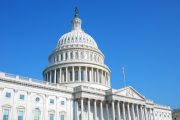
“There’s a lot that the president can do using his executive authority without waiting for congressional action, and I think we’ll see the president do that,” John Podesta, head of Obama’s transition team, prophesied when he appeared on Fox News Sunday, last November.
The 44th President may use the 36th anniversary of the infamous Roe v. Wade Supreme Court decision, which falls on his second full day in office, to send a clear message that he intends to promote abortions worldwide. Or, he may do it even sooner, perhaps on his first full day in office.
President Ronald Reagan created the plan that banned taxpayer funds from being used to promote abortions in 1984. It was continued by the first President Bush for the length of his presidency. President Clinton lifted the ban in 1993, and the most recent President Bush reinstated the pro-life policy in 2001, on January 22. Critics of President Bush’s action in the matter referred to it as a “legislative ambush,” at the time.
On January 16 of this year, a bipartisan group of 77 congressmen wrote a letter to the Obama transition team urging the president-elect to continue the Mexico City Policy, “which separates abortion and family planning in America’s foreign aid programs.”
Currently over 650 organizations receive funding under the Mexico City Policy restrictions. International Planned Parenthood and Maria Stopes International refuse to abide by the restrictions and therefore do not receive funding. If the president reversed the restrictions, however, these two organizations would likely receive funding once intended for the 650 organizations who do not promote abortion in any way as a means of family planning.
Two other areas of concern to pro-lifers might also be targeted by President Obama. The first would be the ban on embryonic stem cell research (ESCR) funding. Presently the law prohibits federal funds for the creation of human embryos for research, as well as experimentation that destroys or threatens the health or life of embryos. It’s known as the Dickey Amendment and has stood since 1996.
The Dickey Amendment has been termed an “underlying” federal law, subject to various interpretations over the years. The new president would have little to risk by taking an executive-order swipe at it, which may or may not result in a court battle. Or, because the amendment is part of the annual spending bill for the Department of Health and Human Services and must be approved each year, he could simply presuppose his wishes on a democratic-controlled Congress, and it would simply not be approved.
The second area of concern would be funding the UN Population Fund (UNFPA). Currently the Kemp-Kasten Amendment has been invoked to prohibit congressionally approved funds from going to the UNFPA based on the agency’s support of China’s coercive, population-control program. The 1985 Kemp-Kasten Amendment prohibits family planning money from going to any entity that, as decided by the president, "supports or participates in the management of a program of coercive abortion or involuntary sterilization." President Obama would need Congress’ help on this one, but they could easily approve the passage of funds to UNFPA early this year.
This is indeed “change” — a kind that sees the global promotion of abortion funded by U.S. taxpayer monies.
Update: President Obama signed the executive order reversing the Mexico City Policy on Friday, January23, his third full day in office.



